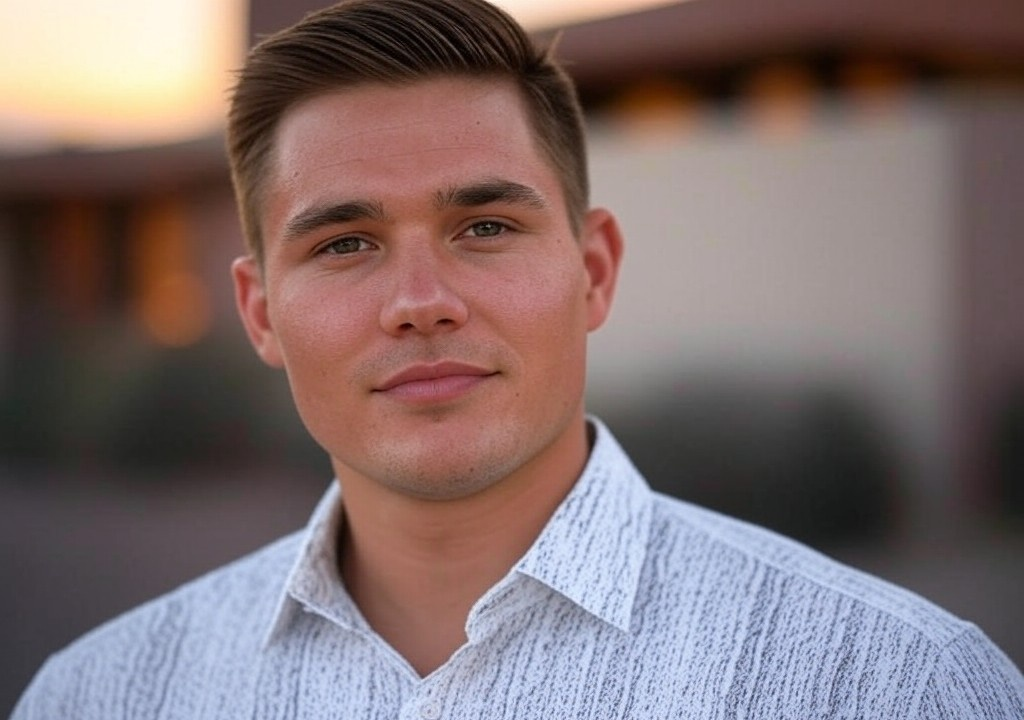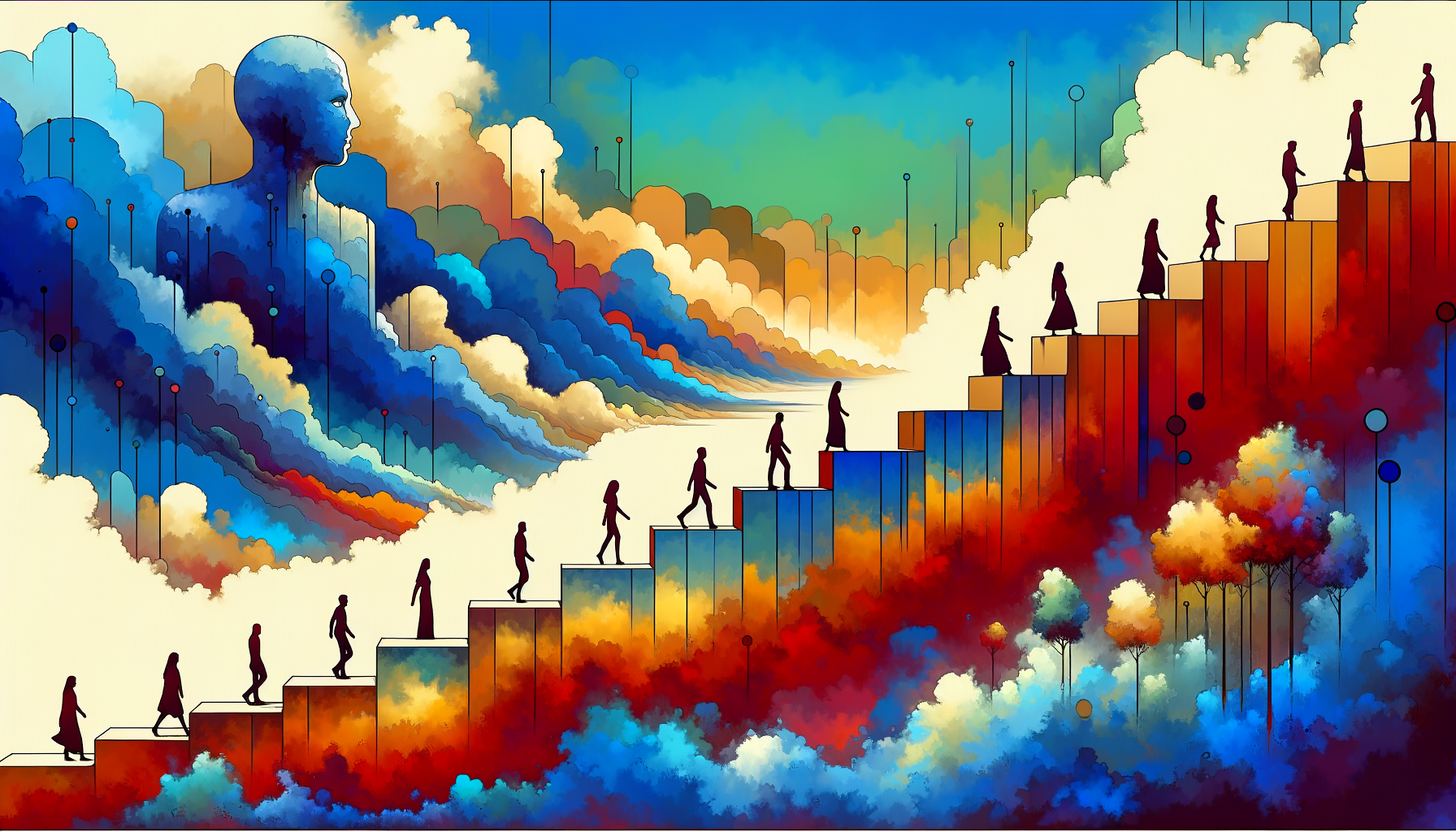Why does one person stand at the foot of a mountain, silent in awe, while another scrambles excitedly to the peak, documenting every ridge and crevice along the way? For me, writing has always felt like that climb—part discovery, part discipline, and always an adventure. It’s my way of scaling life’s emotional terrain, from the dizzying highs of connection to the dry spells of doubt. It’s how I make sense of the world around me, and frankly, sometimes how I survive it.
Let’s face it: relationships, like desert hikes, are messy, unpredictable, and way more fun when you come prepared. Maybe that’s why I write about them. I’ve had my fair share of dates that mirrored the Sonoran terrain—some lush and interesting, others barren and scorching enough to fry the metaphorical huevos on the pavement. Writing helps me find the humor and meaning in all of it. And no matter how absurd or awkward life gets, the stories keep coming.
But I’ll save the hard-luck romances for another day. What I really want to talk about is why I write—and why I keep coming back to the blank page, even when it’s as intimidating as a thunderstorm rolling over Pinnacle Peak.
When Words Are the Map
Have you ever tried assembling IKEA furniture without instructions? That’s how I felt on my first date in college. I thought I’d nailed “cool” with my button-up shirt and borrowed cologne, but my date was less impressed. No sparks flew that night, but something else did—a revelation that connection requires more than improvisation. It takes intention. That insight stuck with me, and it’s why I started journaling—not because I wanted to relive a bunch of awkward moments, but because I wanted to learn from them.
Writing became my map. Whenever I felt lost—navigating a breakup, negotiating a disagreement, or asking myself what I truly wanted—it was there for me. It’s like writing down directions to your own heart, turning chaos into clarity. And that’s what inspires me to keep exploring others’ stories, too. Scratch the surface of any relationship, and you'll find a dozen tiny maps waiting to be pieced together.
The truth is, life throws us all into the deep end. Some people paddle, others flail. I write. That’s how I learned that no experience—good or bad—is ever wasted when you’re willing to make it into something bigger.
Storytelling Is the Ultimate Power Move
Here’s something they don’t teach in business school: you can’t market a product, sell an idea, or even nab a second date without understanding how to tell a story. The first time my marketing professor broke this down, I felt like I’d been handed the secret to life. Every campaign I designed after that had a narrative arc; every one of my relationships started as a story shared over a meal or text thread. Writing works the same way—it’s about hooking your reader (or your person), keeping them invested, and trusting the journey enough to show them all your hidden edges.
When I write about relationships, I’m not just dishing out advice; I’m inviting readers into the messy, unfiltered process of being human. You could say it’s my particular version of the elevator pitch: “Here’s how I see the world—what about you?” Whether it’s a five-paragraph essay or a late-night conversation, the best stories leave us changed by the telling.
Romantic Misfires Make the Best Material
Okay, confession time: I once brought a date to an outdoor art exhibit without checking the weather. Let’s just say the sculptures weren’t the only frozen objects that evening. We bailed early, grabbed bowls of chili at a dive bar, and ended up laughing about how badly things had gone. Was it serendipity or poor planning? A little of both. But you know what? I wrote about it the next day, and that piece reminded me that no date—no matter how tragically cold—goes to waste when there’s someone willing to laugh with you.
Writing about relationships is like making chili: you throw in a mix of wins, losses, and ridiculous mishaps, simmer it all together, and end up with something surprisingly good. Those stories—the ones where we’re vulnerable, awkward, and unpolished—are the ones that connect us the most. They remind me why I keep showing up, whether it’s for another date or another draft.
Writing as an Act of Optimism
Every time I sit down to write, I’m betting on two things: that my words can make someone feel seen, and that storytelling, in its smallest form, can build a bridge. Maybe that sounds lofty, but it’s true. Writing is my way of saying, “Let me show you my corner of the world.” And if I can get readers to say, “Hey, I’ve been there, too,” that’s the real win.
In relationships, we’re all optimists at heart. After all, you don’t put yourself out there—dressed to impress, armed with your best stories—unless you believe something good will come of it. Writing is the same. Each sentence carries the hope that even if it’s not perfect, it’ll be worth it.
What I’ve Learned Along the Way
Over time, writing has taught me a few truths about relationships (and life in general). Here are some of the big ones:
- It’s okay to start messy. Whether it’s a bad date or a clunky first draft, perfection is overrated.
- The details matter. A cactus in bloom, the joke that made her laugh—sometimes it’s the small things that make everything else worthwhile.
- Keep showing up. For love, for friendship, for the work you care about most. Consistency beats inspiration every time.
- Embrace the rewrite. Life isn’t linear, and neither is love. Stay flexible. Adapt.
Writing and relationships are strikingly similar: both require intention, courage, and the ability to laugh at your own mistakes. If you’ve learned anything about yourself lately—something profound or just plain goofy—don’t hold back. Write it out, talk it out, or share it over dinner. Stories are the glue that bind us.
The Final Word (For Now)
I may have been raised near a desert, but my love of storytelling is an oasis—a place to pause, reflect, and find connection again and again. Whether I’m writing for myself, for readers, or even just to sort out my thoughts, it’s the constant in a world that feels anything but. Maybe one day I’ll run out of stories to tell, but if human nature has taught me anything, it’s that I won’t. Because while connections come and go, the meaning we make out of them stays forever.
So, I write. And I’ll keep writing. Through every first date, every hard conversation, every triumph and failure, I’ll tell the stories that stitch it all together. And in my own way, I hope they’ll remind you to start telling yours, too.




















